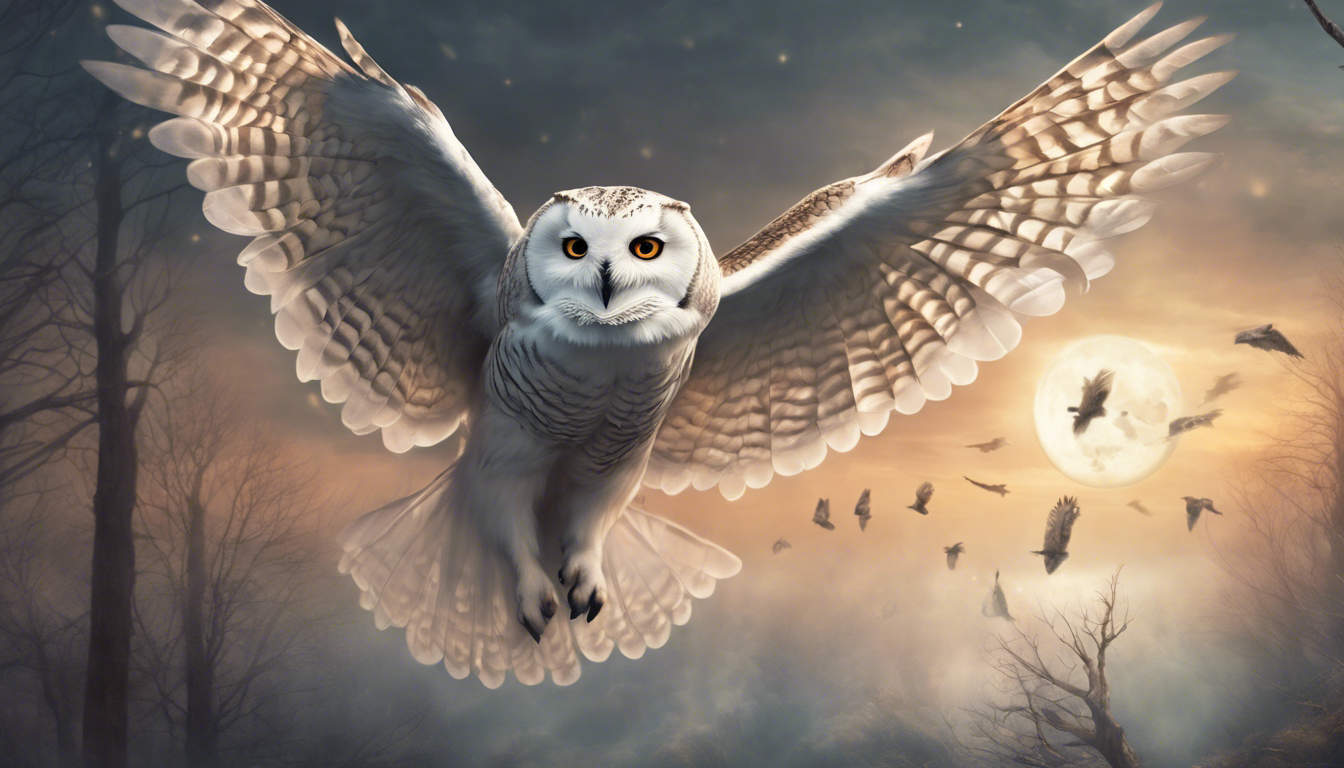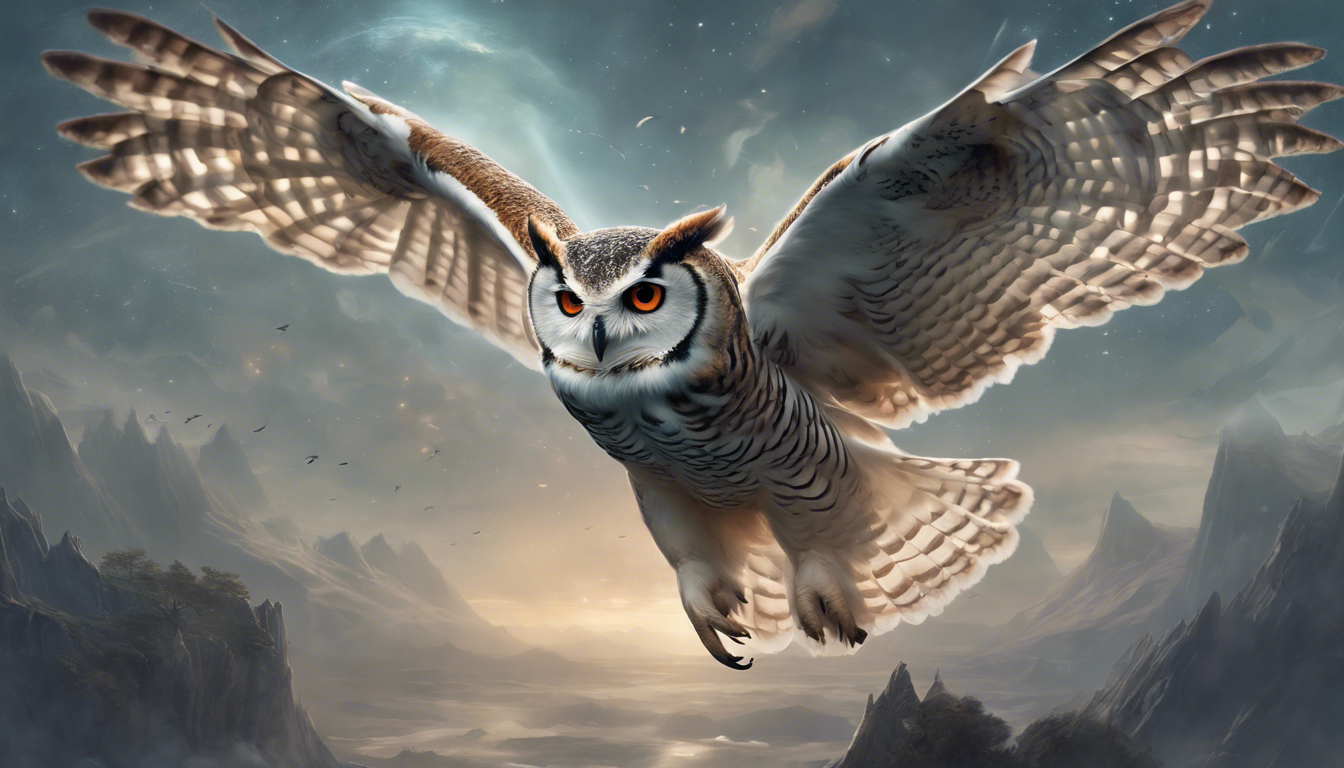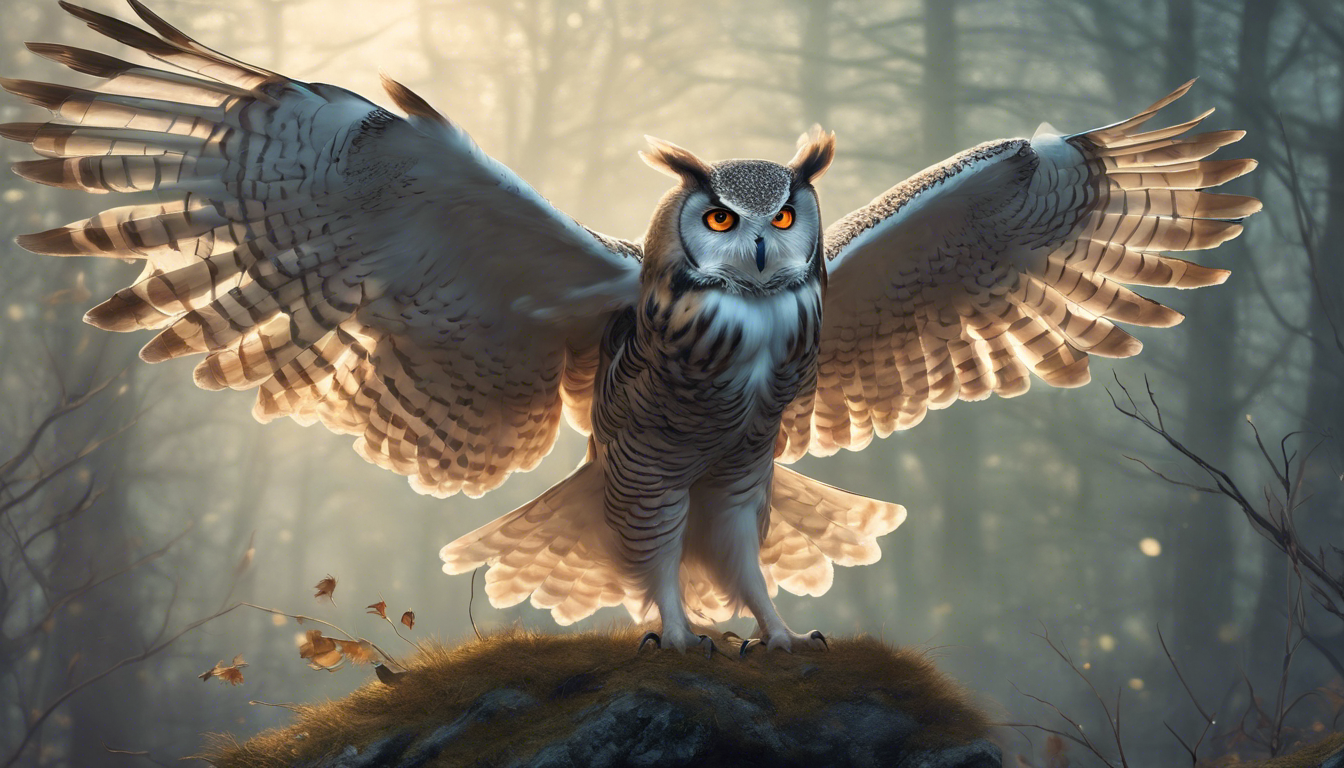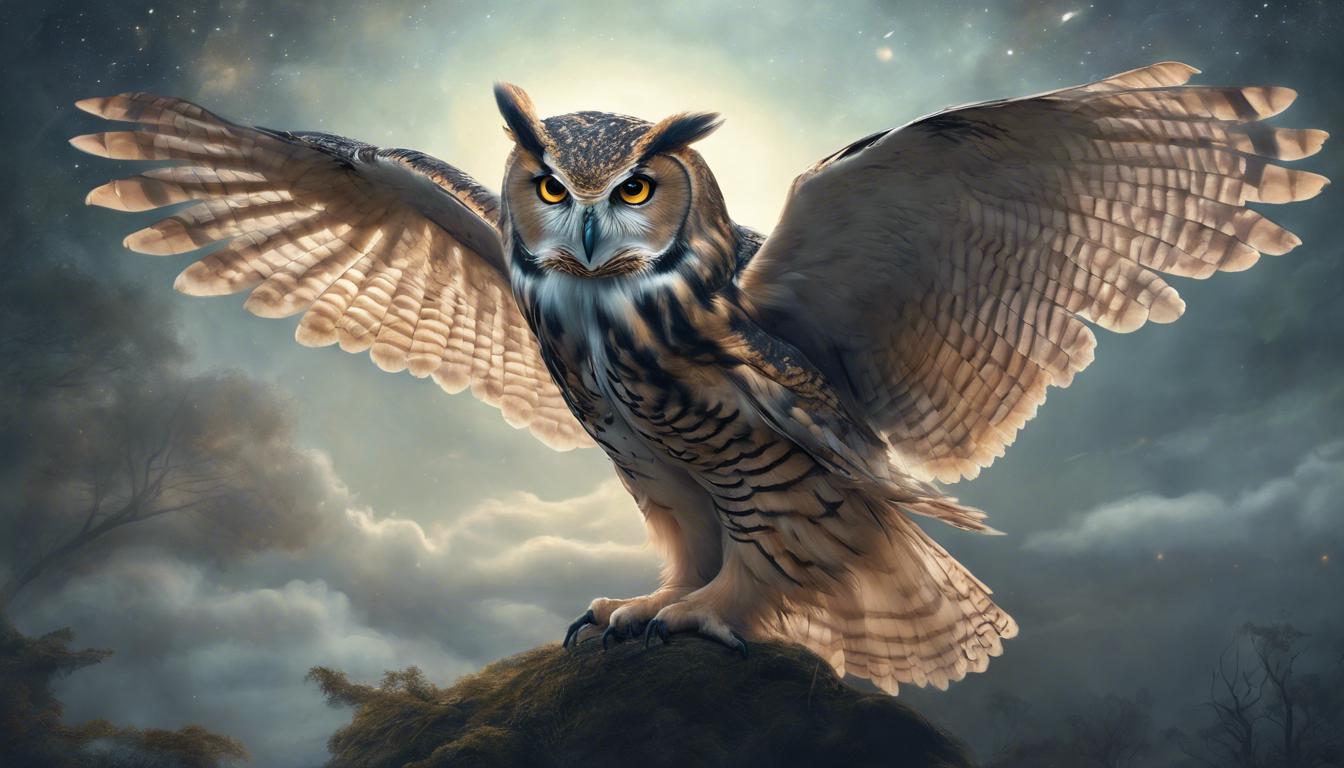The Myth of Owls as Harbingers of Bad Luck
The Mysterious Reputation of Owls
Owls have long been associated with mystery, wisdom, and in some cultures, as harbingers of bad luck. This reputation has been reinforced through mythology, folklore, and popular culture, creating a complex and intriguing image of these nocturnal birds of prey.
Roots of the Myth
The belief in owls as harbingers of bad luck can be traced back to ancient times. In Greek mythology, owls were often seen as symbols of wisdom, but they were also connected to death and misfortune. Similarly, in some Native American cultures, owls were considered omens of impending danger or even death.
Cultural Interpretations
Different cultures have varying interpretations of owls and their symbolism. In many Western cultures, seeing an owl at night is commonly associated with ominous forebodings or a sense of unease. On the contrary, in some Asian cultures, owls are seen as protectors against evil spirits and bringers of good luck.
Scientific Facts vs. Superstitions
Despite the myths surrounding owls, scientific research has shown that these birds play vital roles in ecosystems by controlling pest populations and maintaining balance in nature. It’s essential to distinguish between superstitions and scientific facts when considering the true nature of owls.
Embracing Owls with Respect
Instead of fearing owls based on unfounded superstitions, it is crucial to appreciate these majestic creatures for their beauty, grace, and ecological significance. By understanding and respecting owls, we can dispel the myth of them being harbingers of bad luck and instead see them as valuable members of our natural world.
In conclusion, while the myth of owls as harbingers of bad luck persists in various cultures, it’s essential to approach these beliefs with a critical eye and a respectful attitude towards the wildlife around us. Owls, with their captivating presence and unique characteristics, deserve to be admired and appreciated for the role they play in our ecosystem. Let us embrace owls with open minds and appreciative hearts, setting aside superstitions to truly understand and value these remarkable birds.
Owls’ Symbolism Across Different Cultures

The Wisdom of Owls
In various cultures around the world, owls have been revered as symbols of wisdom and knowledge. Their ability to see in the dark and their mysterious nature have attributed to this symbolism.
Owls in Native American Culture
Among Native American tribes, owls are often seen as messengers and symbols of foresight. The owl is associated with wisdom and is believed to provide protection and insight to those who seek it.
Owls in Greek Mythology
In Greek mythology, the owl is linked to the goddess Athena, who is considered the goddess of wisdom. Owls were seen as sacred and a representation of intellect and strategy.
Owls in Japanese Culture
In Japanese culture, owls are associated with luck and protection from suffering. They are believed to bring good fortune and are often depicted as guardians of the home.
The symbolism of owls across different cultures highlights the universal perception of these magnificent creatures as bearers of wisdom and protection. Their presence in myths, folklore, and spiritual beliefs signifies the enduring significance of owls in human history.
The Truth Behind Owls’ Presence

When delving into the mystical world of owls, one cannot help but wonder about the truth behind owls’ presence. These nocturnal creatures have fascinated humans for centuries, appearing in various cultures, myths, and spiritual beliefs. Let’s explore the enigmatic essence of owls and uncover their significance.
The Symbolism of Owls
Owls have long been associated with wisdom and intuition in numerous cultures. In Greek mythology, the owl was linked to Athena, the goddess of wisdom. Native American tribes considered owls as messengers and guardians of the spirit world. Understanding the symbolism behind owls can provide insight into their mystical presence.
Owls in Spirituality
In spiritual practices around the world, owls are often seen as omens or guides from the spiritual realm. Their ability to see in the dark symbolizes the ability to navigate through the unknown. Connecting with the spiritual essence of owls can offer protection and guidance on one’s spiritual journey.
The Mystical Powers of Owls
Many believe that owls possess mystical powers related to clairvoyance and secret knowledge. In folklore, owls are often associated with omens of change or magic. Delving into the mystical realm of owls can open doors to a deeper understanding of the unseen energies at play.
Embracing the Owls’ Presence
Whether you encounter an owl in the physical world or in your dreams, embracing their presence can offer insight and protection. Pay attention to the messages they bring and the energy they embody. Owls are not merely creatures of the night; they are spiritual companions guiding us on our journey of self-discovery.
Next time you spot an owl or hear its haunting call in the darkness, remember that there is more to their presence than meets the eye. Embrace the mystery and wisdom that owls bring, and let their spiritual significance enrich your life.
Owls as Guardians of the Night: Reality or Superstition?

The Symbolism of Owls
Owls have long been associated with wisdom, mystery, and intuition. In many cultures, they are seen as symbols of knowledge and foresight. The owl’s ability to see clearly in the darkness of night has led to beliefs that they possess supernatural abilities. This symbolism has contributed to the idea of owls as guardians of the night.
Mythological and Cultural Beliefs
Throughout history, owls have been both revered and feared. In ancient Greek mythology, the owl was associated with Athena, the goddess of wisdom, while in some Native American cultures, owls were believed to be messengers of spiritual knowledge. On the other hand, in some cultures, owls were considered harbingers of death and ill omens. These contrasting beliefs have contributed to the complex perception of owls in different societies.
Scientific Perspective
From a scientific standpoint, owls do possess remarkable adaptations that make them well-suited for hunting at night. Their exceptional night vision, acute hearing, and silent flight make them efficient predators in the dark. While owls may not have mystical powers, their physical characteristics enable them to thrive in nocturnal environments.
Owls in Folklore
Folklore often depicts owls as protectors or guides, particularly in stories involving the supernatural or the unknown. In some cultures, owls are believed to bring messages from the spirit world or to watch over individuals during the night. These tales have reinforced the perception of owls as mystical creatures with a special connection to the spiritual realm.
Superstitions and Modern Beliefs
Despite scientific explanations for owl behavior, superstitions about owls persist in many parts of the world. Some believe that hearing an owl’s call signifies impending doom, while others see them as symbols of good luck. The interpretation of owl encounters varies widely, with beliefs ranging from foreboding to protection.
In conclusion, the perception of owls as guardians of the night is a complex interplay of cultural, mythological, and scientific factors. While some aspects of owl symbolism may be rooted in superstition, there is no denying the fascination and intrigue that these enigmatic birds evoke in human imagination. Whether seen as wise protectors or eerie omens, owls continue to capture our imagination and inspire awe in their nocturnal domain.


Article written by Dera
Greetings, I am Dera, a 35-year-old individual with a deep passion for spirituality. Through my website, I aim to share my insights and knowledge to help others on their spiritual journey. Join me on the path to inner peace and enlightenment.